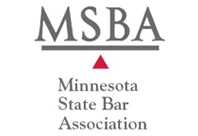Bankruptcy can be a difficult decision, and you may wonder if you will have to give up all your possessions. When determining if this step is right for you, you should know about Minnesota bankruptcy exemptions that will allow you to clear your slate while keeping many of your assets.
For more information about your specific situation, contact Gregory J. Wald Attorney at Law. Call us today at (952) 921-5802.
Choosing Bankruptcy in Minnesota
Bankruptcy can be a good solution if you are no longer able to pay your debts and your creditors are unwilling to work with you. Whether you are thinking of filing Chapter 7 or Chapter 13, you will likely wonder if you will have to give up what you already own. In most situations, you will be able to protect your property through Minnesota bankruptcy exemptions.
Protecting Your Property with Bankruptcy Exemptions
In most states, you can choose between either state exemptions or federal exemptions for your property when you file bankruptcy. Exemptions may keep you from losing most of your property, and you may even be able to keep all of it.
Minnesota Homestead Exemption
You can protect up to $420,000 of the equity of your home and land or up to $1,050,000 of the equity of your agricultural property up to 160 acres. This includes insurance proceeds if your home is damaged or proceeds from the sale of your home for up to one year after that sale.
Minnesota Motor Vehicle Exemption
Up to $4,800 of equity in one motor vehicle is protected under the Minnesota motor vehicle bankruptcy exemption. If the vehicle has been modified to accommodate a disabled person at the cost of at least $3,600, then you can exempt as much as $48,000 for that vehicle.
Other Minnesota Bankruptcy Exemptions
Other types of property may also be exempted, such as:
- Employee Benefits – This includes stock, bonuses, pension, profit sharing, IRAs, retirement, and other plans worth up to $72,000.
- Personal Property – This includes clothing, one watch, food, appliances, and other things generally kept in your home worth up to $10,800. It also includes tools, livestock, and other work gear worth up to $11,500. Farm machines may be exempted worth up to $13,000.
- Insurance Benefits – Proceeds from an insurance payout due to the death of a spouse or parent may be exempted up to $46,000, plus an additional $12,000 for each dependent. Personal injury and wrongful death recoveries may also be exempted under certain situations.
- Public Assistance and Benefits – All public assistance benefits, including unemployment, workers’ compensation, and veterans’ benefits are exempted.
- Wages – As much as 75% of your gross earnings may be exempted, or 40 times the federal minimum wage.
- Tax-Exempt Retirement Accounts – 401(k)s, 403(b)s, SEPs, IRAs, and other retirement accounts may also be exempted.
Before assuming that your assets are exempt from bankruptcy, you should consult with a bankruptcy attorney. You don’t want to file bankruptcy and then find out that your property and assets are not exempt, then lose them in the legal proceedings.
What Happens to Nonexempt Property?
Property that is not exempt means it cannot be protected. In a Chapter 7 bankruptcy, your trustee will sell any nonexempt property and distribute that money to creditors. In a Chapter 13 bankruptcy, you can keep all of your property; however, you do have to pay the nonexempt property value to your creditors through your payment plan.
Call a Minnesota Bankruptcy Attorney for Help
Determining what may be exempted in a bankruptcy can be complicated. Sometimes it involves legal knowledge and calculations to determine if your assets meet certain qualifications. We can help you keep your property and obtain a successful bankruptcy. Call Gregory J. Wald Attorney at Law today at (952) 921-5802.








